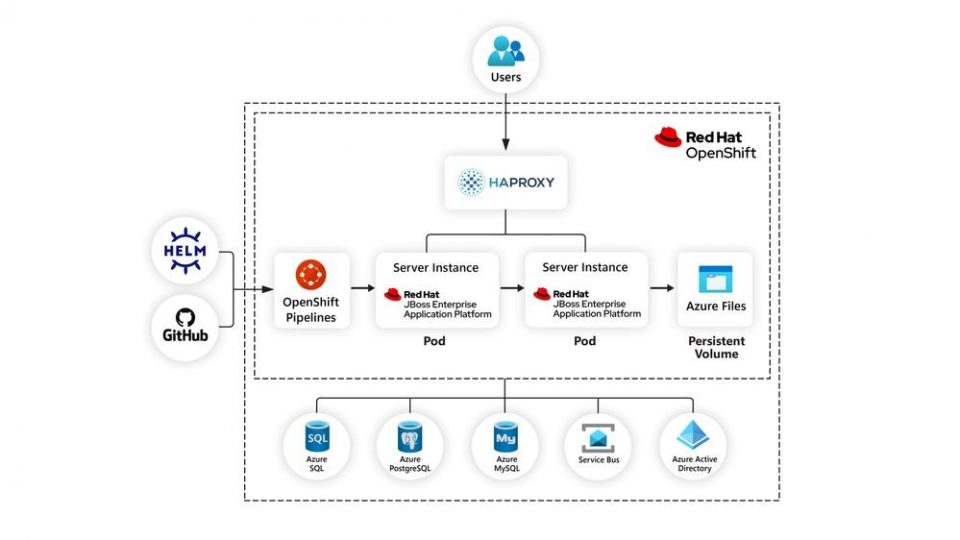Red Hat announced advancements to Red Hat JBoss Enterprise Application Platform (JBoss EAP) on Microsoft Azure, including new consumption models and clustering features. JBoss EAP on Microsoft Azure enables customers to modernize and deliver existing Jakarta EE applications and build new ones with greater speed and efficiency on a fully-managed cloud platform. With multiple ways to use JBoss EAP on Azure, customers have the ability to choose what level of control and assistance they need.
Streamlining Java consumption on Azure
As organizations look to shift workloads to the cloud, they can now take advantage of the benefits of Red Hat OpenShift through JBoss EAP on Azure Red Hat OpenShift. As a fully-managed Red Hat OpenShift service jointly-developed, operated and supported by both Red Hat and Microsoft, Azure Red Hat OpenShift enables customers to more quickly create a cluster and deploy JBoss EAP in minutes, increasing operational efficiency and application velocity.
Additionally, JBoss EAP is now available as the first fully pay-as-you-go Red Hat offering for application services publicly available in Azure Marketplace. IT organizations can use this offering to more easily procure Red Hat solutions through Azure Marketplace, without an existing Red Hat subscription. This helps to reduce costs and expand capabilities while maximizing existing investments. This consumption model provides customers with a simpler way to move existing applications to the cloud while retaining support from Red Hat for product updates, upgrades and servicing. The applications deployed will be able to utilize other Azure services, such as Azure Database for PostgreSQL, enabling customers to tap into existing offerings in a more flexible and cost-efficient manner while building a stronger security footprint.
New clustering features
JBoss EAP on Azure App Service can now automatically start as a clustered service using virtual networking for node-to-node communication. It is also enabled for auto-scaling operations through Azure App Service, a fully-managed platform for creating web applications. This enables the cluster size to dynamically grow or shrink depending on service load or other customizable factors. Applications that use stateful session beans, distributed transactions or require high availability can run more efficiently on Azure App Service, while benefiting from Azure App Service acting as the central management plane for deploying code, scaling up or down and updating application configuration.
The addition of clustering to JBoss EAP on Azure App Service is designed to increase performance and the availability for shared loads, making Red Hat solutions more easily consumable on the cloud with an integrated support model. In addition, this model creates flexibility for organizations when planning their committed spend.
Red Hat and Microsoft have deep roots in Java and these advancements illustrate a continued commitment to support JBoss EAP on Azure, further enabling choice and flexibility for customers in their efforts to bring Java to the cloud.




